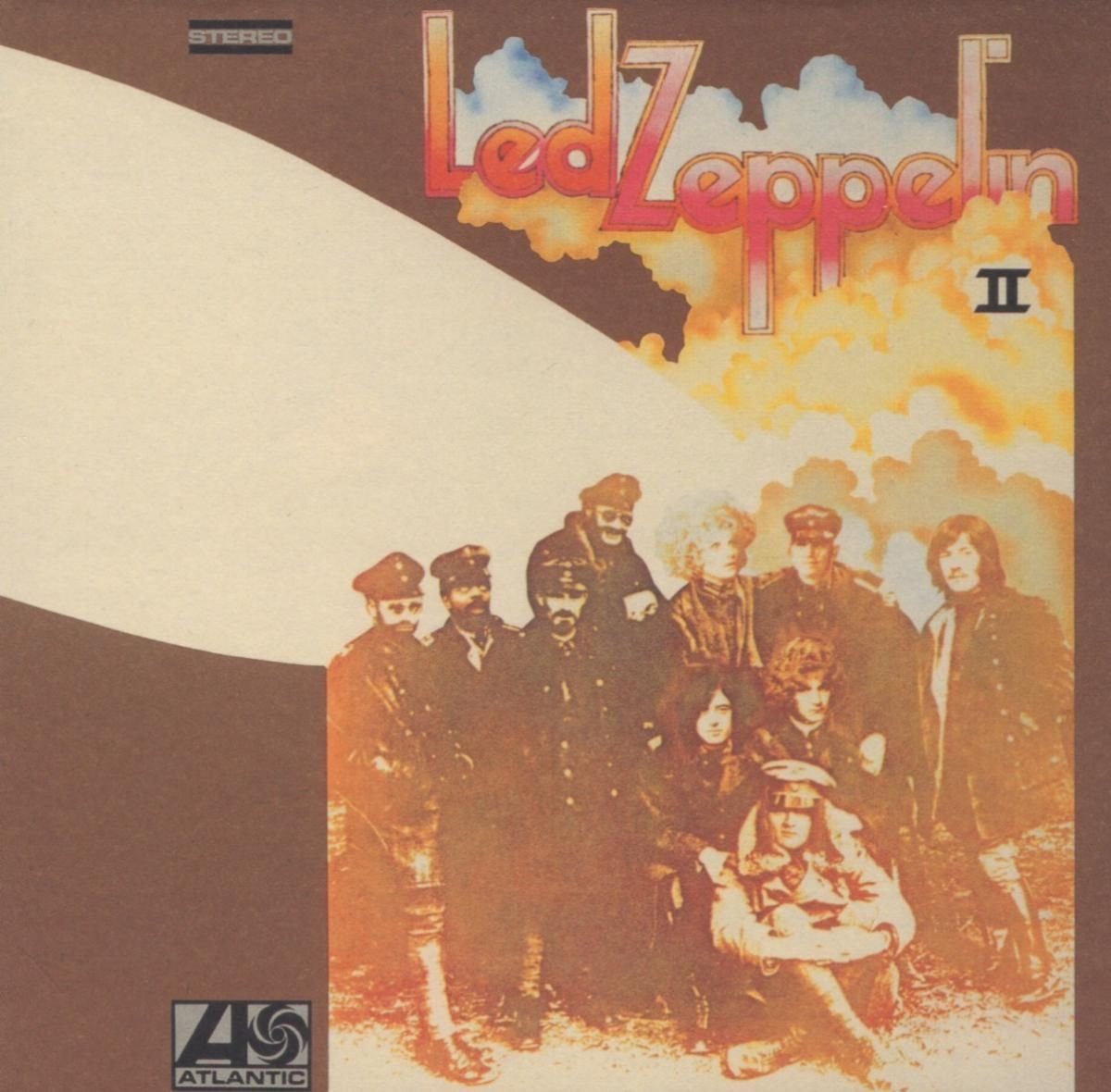Led Zeppelin’s debut album was proof of concept for Jimmy Page, taking what Cream did with super-charged blues-rock, and just making it more slick and dynamic and marketing it directly at the North American market. With a Golden God frontman, a powerhouse drummer and a fourth band mate who could pretty much play whatever the song required, Jimmy Page had a band capable of wrangling the music into his head into reality, and not only that, they had exactly the right manager in the form of Peter Grant, who was fiercely protective of his charges, masterminded their conquering of the America, and ensured that any negotiations he entered into on behalf of the band only had one outcome.
All of this would be for nought if Led Zeppelin struggled to follow up on the success of their debut, so Page and his bandmates must have been feeling the pressure, as they recorded their second album on the road as they toured, popping in and out of recording studios as they toured. This must have resulted in significant technical difficulties in regards to maintaining consistency of sound from studio to studio, however such was the roll that Led Zeppelin were on, they seemingly just took it in their stride, relying on Page’s production knowhow and Eddie Kramer’s engineering to pull it all together. Listening to Led Zeppelin II 50 years after its release, you simply wouldn’t know that it was an album recorded as the band went from studio to studio, as not only was it a great sounding album, but there was a step up in regards to the actual tunes as well.
Led Zeppelin II starts off with one of the most iconic riffs in rock music, with “Whole Lotta Love” arguably becoming the band’s signature tune in a songbook bulging with gold-plated heavy rock classics. From the massive riff, to the ridiculously simple chorus, to John Bonham’s thunderous drums and John Paul-Jones surprisingly detailed bass lines, to Page’s studio-wizardry, “Whole Lotta Love” is a song that condenses everything their fans love about Led Zeppelin, and is the tune that confirmed that the brilliance of their debut was no fluke.
Such is the iconic status of Led Zeppelin II’s hard rocking opener, it was a smart move on behalf of the band to ensure that the rest of the album’s first half harked back to the bluesier material of their debut, albeit with a greater emphasis on riffs. This works particularly well with “What is and What Should Never Be” and “The Lemon Song”, two of the bluesiest numbers on the album, but perhaps too much so, as the band got themselves in legal hot-water down the years, due to their liberal “borrowing” from blues masters, resulting in them having to share credit with Chester Burnett on “The Lemon Song”, and entirety of album closer ”Bring it on Home” being credited to Willie Dixon alone.
The first half of Led Zeppelin II closes with “Thank You”, the most subtle track on the album and a fine contrast to the harder rocking it is surrounded with. Led Zeppelin always had the ability to know exactly when to dial the intensity down, and they absolutely nail it with “Thank You”, as it’s the musical equivalent of a breath of fresh air, ahead of the intense hard rocking of the album’s second half.
Side Two of Led Zeppelin II kicks off with another monster riff, with “Heartbreaker” being a huge sounding mid-paced rocker, which is then instantly contrasted with heads-down boogie-rock of “Living Loving Maid (She’s Just a Woman)”, a snappy little number which gets out the way before anybody starts thinking too hard about how problematic the title and lyrics are by modern standards. From there “Ramble On” rocks as Robert Plant reads from his copy of Lord of the Rings, before the album presents us with that rare beast – a listenable drum solo.
While a frequent staple of live rock concerts, precious few drum solos are actually worth the listener’s investment in time, yet on Led Zeppelin II the band manage to defy the odds on “Moby Dick” by presenting a hugely enjoyable drum solo from Bonham, and bookending it with one of the best tunes on the album, when so many acts would just use something utterly disposable. Not only that, but Bonham doesn’t drag his solo out. Sure, on a live stage “Moby Dick” would be an opportunity for portions of the audience to pop to the bar for a pint or three, as it often extended to an uncomfortably long twenty minutes plus, but on Led Zeppelin II, it’s positively economical, with Page giving his beloved drummer exactly the right amount of run time for him to impress with a solo, while ensuring the listener remains engaged every time they give the album a spin.
Led Zeppelin II closes with the aforementioned “Bring it on Home”, where they once again bookend the main tune, this time with a Willie Dixon number, before they blow the doors off with one of their most underrated album-closing rockers. It’s a brilliant way of closing off an album which not only confirms that Led Zeppelin were just one of the hottest rock acts of their generation, but arguably now its leading lights into the new decade.
There’s a an argument to be made, that Led Zeppelin II is the band’s definitive release, with it being their purest hard rock album, and one that few would ever be able to come close to matching. It seems that even Led Zeppelin themselves realised they had pushed hard rock as far as they could at that point, and their next couple of albums would see them explore a hybrid of folk music with their already established hard rock approach. Wherever they went from here, the world would be listening.














No Comment